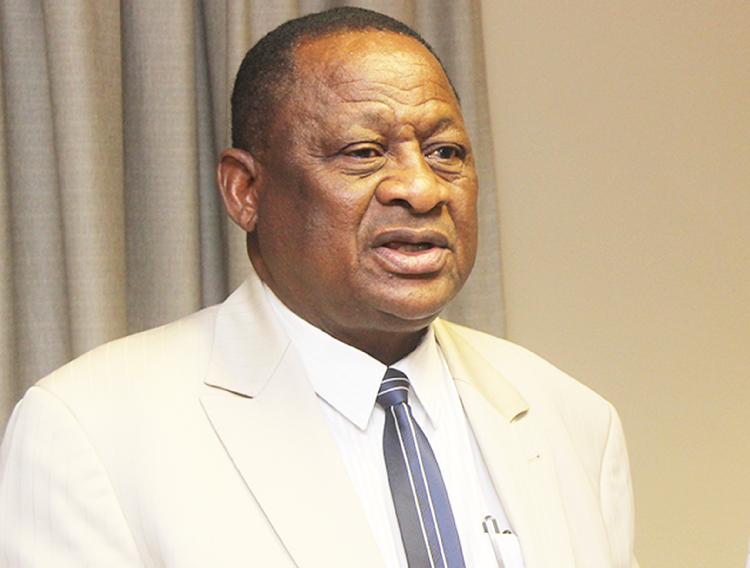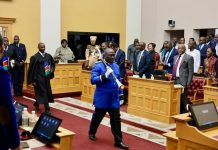Africa-Press – Namibia. THE Ministry of Health and Social Services inaugurated the Oikokola Primary Health Clinic in the Omusati region.
The clinic cost the government N$17,9 million and is clear testimony to the work and commitment of the government in providing services to citizens in different parts of the country, said health minister Kalumbi Shangula at the clinic’s opening last week.
He said the ministry aims to continue expanding health care services with the resources at its disposal.
“Oikokola Primary Health Clinic will alleviate the challenges faced by communities in terms of accessing health and social services. For example, community members will no longer travel long distances to seek healthcare services,” Shangula said.
“The government, through the Ministry of Health and Social Services, provided the necessary equipment and is funding the operational costs of this clinic. Community members will receive preventive and promotive health care services free of charge at this facility, like it is done at other health facilities,” he said.
According to Shangula, the medicines prescribed by health professionals will be included in the user fees for treatment.
“This is our commitment to the people and it is for this reason that we should be pleased to witness the inauguration of the new infrastructure. I have no doubt that the new clinic will provide for a more conducive working environment for all health workers so that they may render quality health and social services to the Oikokola community.”
Shangula said the government aims to strengthen health systems by upgrading existing infrastructure and developing new health facilities to cater for the growing population.
“We will continue to emphasise the primary health care approach in order to promote health and prevent disease.”
Shangula said he believes primary health care is the foundation for a stronger health system, leading towards the realisation of universal health coverage.
“In this context, our people must be empowered to take care of their own health. Therefore, health professionals such as nurses, midwives, doctors, caretakers and members of the communities must engage in open discussions regarding issues of their health,” he said.
Communities must listen to advice from health professionals, and health professionals must allow and encourage the ideas and suggestions from patients and communities, he said.
“In this manner, the health system will become more responsive to the needs of the community. This type of dialogue will allow the community to take ownership of their health,” Shangula said.
By working together, Namibia will be able to achieve the health-related national development goals articulated in Harambee Prosperity Plan II, he said.
“This will require full cooperation between traditional authorities, political leaders, and healthcare managers. I am confident that our country can achieve our national development goals. I thus call on us all gathered here to support ongoing efforts.”
Health services offered at the clinic include immunisations and vaccinations.
OMUSATI REGION HEALTH FACILITIES
The Omusati region now has four district hospitals, six health centres, 41 primary care clinics, and 142 outreach points, with all fixed healthcare facilities provided with modern communication infrastructure to facilitate smooth communication, Shangula said.
According to the 2011 Population and Housing Census, these facilities provide services and care to the more than 243 000 residents of Omusati. They also serve patients from Angola.
More than 65% of these facilities were built after independence, while the Oshikuku district has 17 clinics, nine of which were built after independence, Shangula said.
‘LIVE HEALTHY’
Shangula encouraged communities in the Omusati region to establish backyard gardens in order to improve their health.
“I emphasise the fact that good health starts in our homes and our communities. This is because prevention is better than cure. In this regard, we need to adopt healthier lifestyles. We need to avoid the excessive intake of salt, sugar, saturated fats and alcohol,” he said.
For More News And Analysis About Namibia Follow Africa-Press






